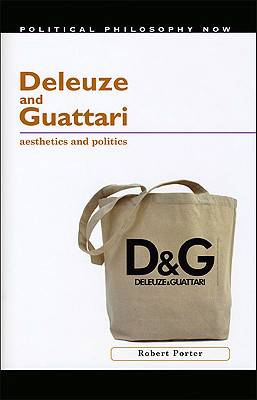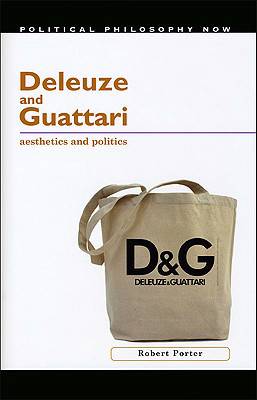
- Retrait gratuit dans votre magasin Club
- 7.000.000 titres dans notre catalogue
- Payer en toute sécurité
- Toujours un magasin près de chez vous
- Retrait gratuit dans votre magasin Club
- 7.000.000 titres dans notre catalogue
- Payer en toute sécurité
- Toujours un magasin près de chez vous
Description
This volume examines the relationship between aesthetics and politics at the forefront of the philosophies espoused by Gilles Deleuze (1925-95) and Pierre-Félix Guattari (1930-92), especially in their famous collaborative works Anti-Oedipus (1972) and A Thousand Plateaus (1980). Robert Porter analyzes the relationship between art and socio-political life, considering the ways the aesthetic and political draw from each other. Particular attention is paid to how Deleuze and Guattari, in their belief that political theory can take on aesthetic form and vice-versa, forced us to confront the fact that art always has the potential to become political, not in the least because of its ability to name and give shape to the order of our world, rather than its representation.
Spécifications
Parties prenantes
- Auteur(s) :
- Editeur:
Contenu
- Nombre de pages :
- 160
- Langue:
- Anglais
- Collection :
Caractéristiques
- EAN:
- 9780708321591
- Date de parution :
- 01-08-09
- Format:
- Livre relié
- Format numérique:
- Genaaid
- Dimensions :
- 140 mm x 216 mm
- Poids :
- 385 g







